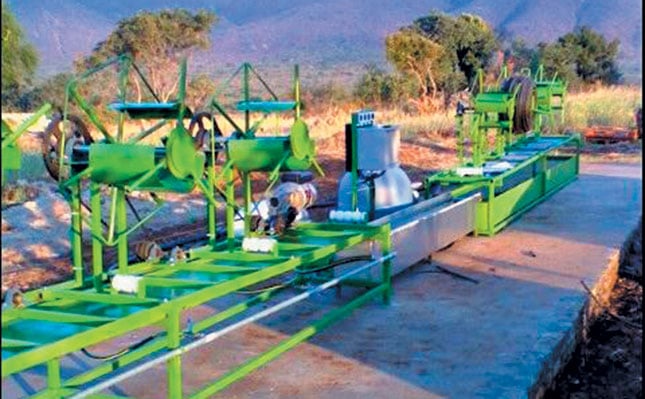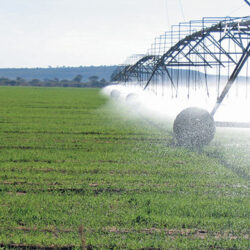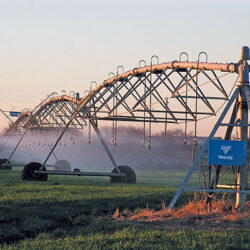Innovative South African technology using ultrasonic sound to clean drip irrigation pipes has been extensively evaluated by the Agricultural Research Council – Institute for Agricultural Engineering (ARC-IAE) in 2003, 2012 and recently.
The results of the latest tests are the most promising yet.
The technology was developed by local farmer, Leon Lingnau. A long-time user of drip irrigation, Lingnau, like most farmers who have embraced this form of irrigation, was frustrated by its notorious tendency to clog.
Determined to address the problem, Lingnau developed a system using ultrasonic sound in a small body of water to effectively and quickly clean drip irrigation lines and pipes.
Sold under the trade name Greendrum, the technology is environmentally friendly and does not use any chemicals. It cleans 900m/h at a cost of R0,07/m, including labour.
Chemical-free cleaning
Drip irrigation is generally considered as the most efficient irrigation system, but the system can also be inefficient due to clogging of the emitters as a result of bad water quality, mismanagement and maintenance problems.
Clogging can be caused by one or more of the following:
- Silt (mud from dirty water);
- Bacteria and fungi (organic material);
- Chemicals (from using fertiliser);
- Metals (iron and manganese).
Filtration, flushing and chemical treatment of the irrigation water can be used to prevent the clogging of emitters. Ultrasonic cleaning can be used to complement these and keep drippers functional.
Testing
ARC-IAE’s recent battery of laboratory and field tests gave insight into the performance of drip irrigation systems under field conditions.
The ARC-IAE laboratory found that the coefficient of variation (CV) in new drippers varied from an excellent 2,1% to a good 4,2% with an average of 3,1%.
The CV of the recovered drip lines from the lands was a fair 6,5% in the first year and worsened to a poor 8,2% in the second year, a clear indication that it was clogging regardless of maintenance and treatment with chemicals.
Emission uniformity (EU) as measured in the field of all the dripper types tended to deteriorate over time from a new pipe EU of 92% to 87,1% in the first evaluation to 82,4% in the fourth and last evaluation one year later.
With regard to the statistical discharge coefficient, the drippers met the requirements in only 69% on average.
Ultrasonic sound
With the Greendrum ultrasonic method ultrasonic sound creates tiny vacuum bubbles on the micro surfaces of the dripper line. These implode in the pipe, causing shockwaves that strip impurities in seconds.
The technology can be set up in a mobile or stationary manner, making it a highly flexible solution. It has a relatively low machine operating cost.
The ARC-IAE carried out a technical evaluation on blocked dripper lines from Pontdrif at the Limpopo River; Pietersburg (borehole water); Mooketsi (Koedoes River), and Vredendal (Olifants River) using the Greendrum system.
The results showed a 73% change in the CV of the dripper line from a poor CV of 10 (57%) to an excellent CV of 2 (85%). The drippers could not be cleaned in any other way, but the Greendrum ultrasonic method was highly effective and thoroughly cleaned the dripper pipes.
The purpose of the dripper line cleaning technology is not to reclaim dripper lines that are dirty and clogged, but to use it as a preventive measure so that the irrigation system stays unblocked. The idea is that dripper lines be cleaned regularly so that a drip irrigation system can work optimally for years.
Maintenance
Maintaining a drip irrigation system properly is crucial for effective operation. It is essential to inspect the irrigation block after each irrigation cycle to identify possible clogging problems (dry patches or under-performing plants) at an early stage.
If leaks occur, they must be repaired rapidly. Executing proper maintenance schedules is of utmost importance.
Email Leon Lingnau at leon.greendrum@gmail.com or phone him on 082 896 0393.




